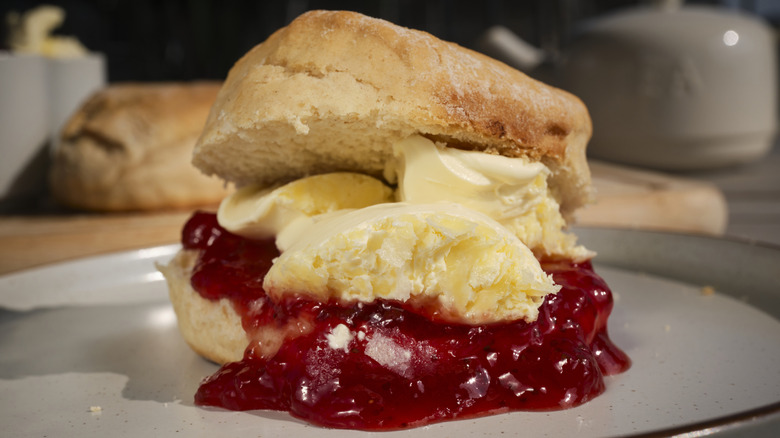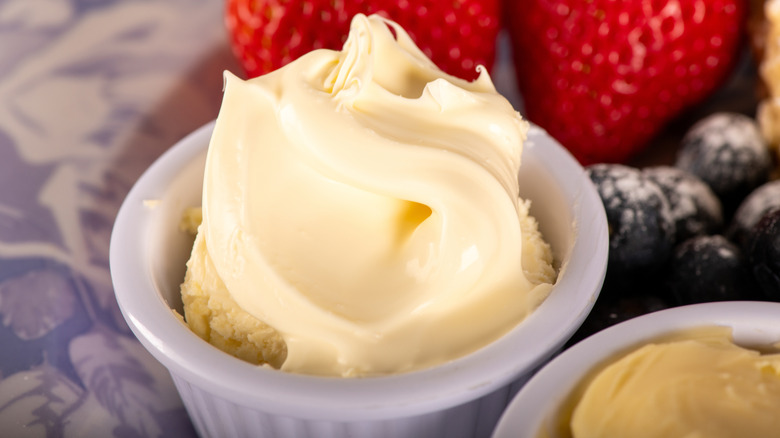What Exactly Is Clotted Cream And Is It Illegal In The United States?
Clotted cream is the kind of wonderful-sounding thing you might come across when reading a book set in Victorian England or perhaps while watching "The Great British Baking Show." However, you're unlikely to encounter this delightful-sounding dairy treat in American supermarkets and restaurants ... at least not the real stuff. Clotted cream — also called Devonshire cream or Cornish cream – is a dairy-based topping made by heating whole milk or cream very slowly until the cream rises to the top, forming "clots." Clotted cream is a staple across Ireland and the United Kingdom. It's an essential component of cream tea, a traditional afternoon tea served with scones, clotted cream, and jam.
Clotted cream fanatics praise its slightly sweet and nutty flavor and rich texture — which is often described as somewhere between whipped cream and butter. Many swear there's simply nothing better to slather on a scone (which is not the same as a biscuit). Unfortunately for Americans who'd like to sample this rich dairy product for themselves, clotted cream is quite difficult to find stateside. It's so uncommon that you might even think that clotted cream is illegal. While that isn't technically the case, there is still a legal catch.
Why is clotted cream hard to find in the United States?
Unlike some European foods (such as Kinder Surprise eggs, which are illegal in America), clotted cream is not explicitly banned in the United States. However, the most traditional way to make clotted cream is with unpasteurized milk or cream, which is subject to much stricter regulations in the United States. As such, making and distributing real-deal clotted cream in the U.S. is not allowed, though you can find products that try to approximate it.
Although it's possible to make clotted cream with pasteurized dairy, purists say it's simply not the same – the texture is different (and most would say lacking) due to the changes in the structures of the fat molecules in pasteurized milk. If you have access to raw milk (which you shouldn't drink before knowing the risks), you can make your own authentic clotted cream at home. However, it's unlikely that traditionally prepared clotted cream will become widely available in the United States anytime soon, so most of us will just have to console ourselves by enjoying some of these tasty American snacks banned in other countries.

